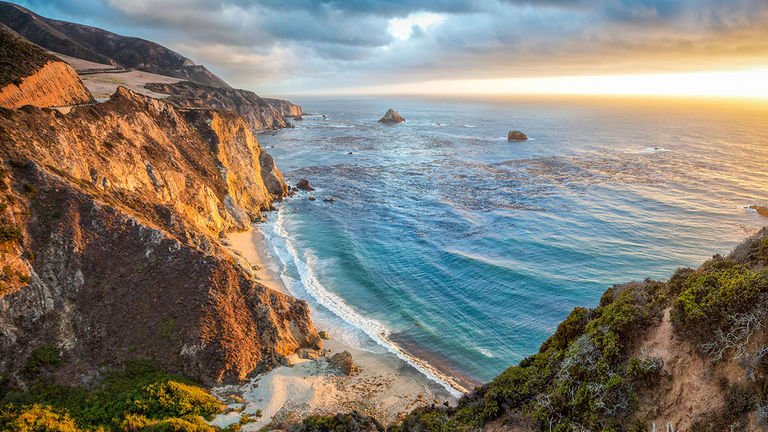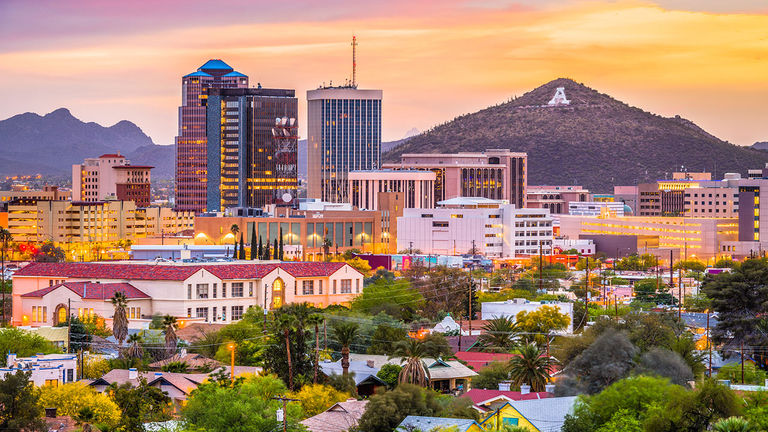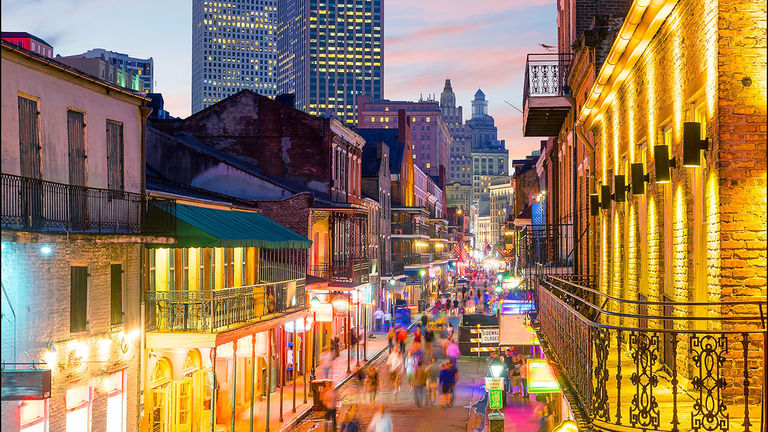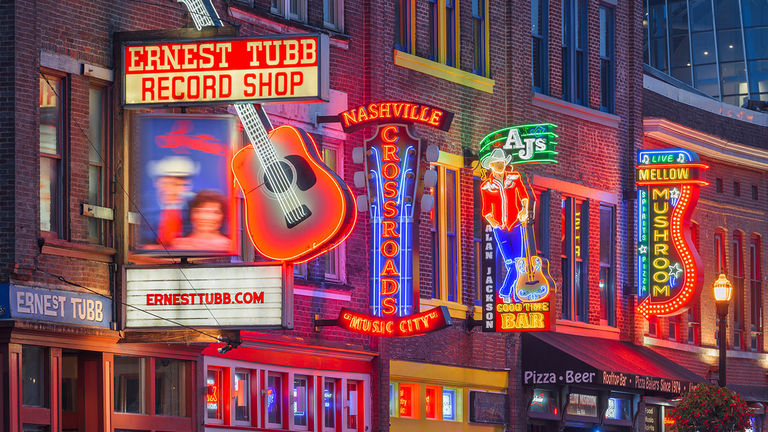Election years can be stressful; tensions often run high. But does that have any effect on travel? The answer may depend on who you consult. Tim Sawhook, owner of Exclusive Travel Partners, a Network of Entrepreneurs Selling Travel (NEST) affiliate in Ohio, believes an election year has both positive and negative effects on the industry.
“During election years, some travelers may choose to delay their travel plans until after the election to see how political changes may affect things such as currency exchange rates, international relations or travel regulations,” he said. “On the other hand, election years can spur travel, as political events and campaigns may create opportunities for business travel, tourism or attendance at political events.”
Meanwhile, in a recent TravelAge West survey of more than 250 travel advisors, 68% of respondents said they feel the national election will have “no impact” on whether clients plan a trip this year. Another 13% believe clients are less likely to plan a trip during an election year, and 10% say clients will be more likely to travel. Eight percent say they don’t know.
The Golden State, for one, reports no negative effects, says Caroline Beteta, president and CEO of Visit California. “Our experience doesn’t bear out an election slowdown,” she said. “In fact, 2016 — the last pre-pandemic presidential election — was a record year in California for visitor spending, tourism employment and state/local taxes generated by visitors.”
Our experience doesn’t bear out an election slowdown ... in fact, 2016 — the last pre-pandemic presidential election — was a record year in California for visitor spending, tourism employment and state/local taxes generated by visitors.
Other industry insiders, however, foresee possible challenges. A recent report in Travel Weekly noted that during April’s Seatrade Cruise Global conference, outgoing Silversea president Barbara Muckermann said her company has tried to encourage 2025 bookings as far in advance as possible to make up for potential dips related to the national election, an event she predicts could most affect the Baby Boomer segment.
 In 2016, California didn’t see a dip in visitors.
In 2016, California didn’t see a dip in visitors.
Credit: 2024 JFL Photography/stock.adobe.comBut no matter if the election impacts bookings, visitor numbers and spending (or not), the flood of election-year advertising can affect how destinations market themselves, according to Graeme Hughes, executive vice president of Visit Tucson.
“We will back off some digital advertising for about a 60-day period, just because the channels are so jammed up,” he said. “You can’t buy into that space because the prices are so jacked up, whether you’re on social or just doing digital.”
 Elections impact Tucson’s marketing strategy.
Elections impact Tucson’s marketing strategy.
Credit: 2024 SeanPavonePhoto/stock.adobe.comThe Personal, the Political and the Vacation Plans
Whether it’s reproductive rights, LGBTQ+ visibility, immigration policies or the political candidates themselves, potentially divisive issues take center stage in an election year.
And some are associated more strongly with certain destinations. Occasionally, that can influence a traveler’s plans.
Virgi Schiffino Kennedy, founder of Lux Voyage, a Philadelphia-based luxury travel consultancy, has fielded concerns from some clients.
“It could be a comment people make in passing, like, ‘I don’t really want to go there because there are those kinds of people who think this way,’” she said. “But they’re not really making hard travel decisions based on that.”
Heidi Nanigian of Orange, Calif.-based Heidi’s Holidays, who is a Signature Travel Network advisor affiliated with Travel Concepts, reports similar experiences. And while uncommon, clients are sharing concerns with more frequency, she says.
“I have a client who was looking for somewhere to travel this summer,” she said. “He hasn’t been to the West Coast, so I suggested Southern California, as well as Seattle. He has strong conservative political beliefs that I was not aware of, and he said he would never travel to either destination due to the liberals who were running both states. This is something that has come up more and more in the past four years — which I did not experience in the past.”
It can be difficult, Nanigian says, because as a travel advisor, she wants everyone to experience every destination, regardless of political views.
Heather Gragg, co-partner and luxury travel designer at Texas-based Synergy Luxury Travel, has also dealt with clients expressing politics-related travel preferences.
“I hadn’t experienced it too much until recently, with some clients not wanting to travel to California or D.C.,” she said.
How Destinations Position Themselves During Election Years
It’s logical that tourism offices and destination management organizations (DMOs) want to appeal to a wide array of travelers, regardless of their political leanings. After all, a “red” traveler could find lots to love in a city or state that tends to vote blue, and vice versa.
“DMOs are painstakingly working to skew it right down the middle, but by nature, we’re going to skew progressive in terms of what we’re pushing out there, because we’re big on promoting diversity, equity and inclusion (DEI),” said Hughes of Visit Tucson. “If we start messaging in a particular way that alienates a certain base of our customers, we’re shooting ourselves in the foot.”
If we start messaging in a particular way that alienates a certain base of our customers, we’re shooting ourselves in the foot.
Hughes does note, however, that Visit Tucson is ready to have conversations with travel advisors or meeting planners, when necessary, to address any issues of concern.
“Tucson is to Arizona as Austin is to Texas,” he said. “We’re not the state capital, but a lot of the negative news that comes out of our state legislature makes people brand Arizona. I don’t think we’re going to initiate that conversation, but if it finds us, we’ll very quickly differentiate what goes on in southern Arizona and Pima County versus what’s going on in the state ... if that’s the message or information our customer needs to be comfortable booking.”
For Beteta of Visit California, there is a clear difference between politics and tourism.
“By and large, the attributes of a travel destination are distinct from — and unrelated to — its political persona,” she said. “The vast majority of travelers understand that even if they disagree with a destination’s political leadership, they can still enjoy its natural and human-made travel assets.”
By and large, the attributes of a travel destination are distinct from — and unrelated to — its political persona.
In California, visitors understand that they have a hugely diverse list of experiences from which to choose, Beteta says, and that they will encounter people of all cultures and identities.
“Not everyone in a particular destination shares the same exact views, just as not all travelers do,” she said. “And sometimes, we can disagree on politics but agree on food, hiking trails or the best beaches. I think we could all benefit from finding more of what brings us together.”
New Orleans is yet another destination that projects a welcoming attitude toward diversity of identity and beliefs through its marketing and brand identity.
 In 2019, New Orleans launched the “Everyone’s Welcome Here” campaign.
In 2019, New Orleans launched the “Everyone’s Welcome Here” campaign.
Credit: 2024 f11photo/stock.adobe.com“We are very proud of our ‘Everyone’s Welcome Here’ campaign that we launched in 2019 in partnership with the New Orleans LGBTQ Hospitality Alliance,” said Walter J. Leger III, president and CEO of New Orleans & Company, the official destination sales and marketing organization for the New Orleans tourism industry. “New Orleans has long been known as a place where everyone is welcome to enjoy our incredible culture, but the Everyone’s Welcome Here campaign makes that clear, and provides businesses that join the program with educational support to enhance inclusivity in their day-to-day operations.”
Not everyone in a particular destination shares the same exact views, just as not all travelers do. And sometimes, we can disagree on politics but agree on food, hiking trails or the best beaches.
Leger notes that his destination is a good example of contrasts on the political spectrum, as well as the inclusivity and acceptance of diverse opinions.
“The city of New Orleans, like many cities around the nation, is composed of residents and elected officials who tend to be more progressive than residents and elected leaders in the rest of the state, and I think every DMO is different and must weigh the best action for their stakeholders,” he said, noting that his organization has helped customers connect with elected officials about issues concerning them.
Marie Sueing, chief diversity officer for the Nashville Convention & Visitors Corporation (NCVC), also favors healthy communication about the topics that concern travelers and their travel advisors.
“We encourage open and productive conversations with meeting planners and travel advisors,” she said. “Through those discussions, they know that Nashville is an open, welcoming city that respects and embraces the differences among us. As we often say, music is a universal language. In Nashville, we believe that our differences make our community stronger. As Music City, we continue to advocate to be a safe and welcoming place for people to gather in connection rather than division.”
The Boycott Question
Even when it’s not an election year, the issue of boycotts is likely to spark debate in the travel industry. Visit Tucson’s Hughes is among the many industry insiders opposed to the concept of boycotting a destination because a traveler disagrees with its politics, legislation or decision-makers.
“You can do more by showing up and calling attention to the issue than by just not showing up,” he said. “When you don’t show up, the people who you’re most interested in helping and supporting are those who are most directly and negatively impacted.”
Sueing of the NCVC agrees, noting some negative reactions to recent legislation in the state of Tennessee.
“We ask that groups not penalize the city of Nashville and our hospitality industry for statewide laws,” she said. “The city, the industry and the NCVC have worked tirelessly on solutions in support of equity, inclusivity, sustainability and moderation. Boycotting Nashville does not help change laws or the minds of state political leaders. Instead, it could inadvertently harm frontline industry employees.”
Leger of New Orleans & Company also encourages interaction, rather than boycotts.
“When customers have disagreed with legislation being enacted by our legislature, we have encouraged them not to boycott, but to engage,” he said. “Not to stay away, but to come to our community. Not to avoid the issue, but to embrace the opportunity to add their voice and values to the debate.”
When customers have disagreed with legislation being enacted by our legislature, we have encouraged them not to boycott, but to engage. Not to stay away, but to come to our community.
He added that change comes from constructive engagement.
“Otherwise, you are preaching to the choir,” he said. “I am very proud that our team has had success saving business with this approach, and hopefully assisted our customers in delivering on their mission.”
 Nashville’s DMO discourages travel boycotts inspired by state laws.
Nashville’s DMO discourages travel boycotts inspired by state laws.
Credit: 2024 Sean Pavone Photo/stock.adobe.comThe Role of Travel Advisors
Travel advisors play an important role in helping clients balance travel interests with social and political concerns, according to Nanigian of Heidi’s Holidays.
It can be difficult, she says, because clients often want her opinion on what she would do and ask whether she would “still travel,” to certain destinations that might have a divisive political climate. But while Nanigian is happy to share her personal feelings about whether she would travel to a particular destination, she knows she may not share the same beliefs as her clients.
“My role as a travel advisor has become one of an educator,” Nanigian said. “I share everything I know about the destination to which they are traveling. I also recommend that every client purchase travel insurance, so that if something does go a direction they are not comfortable with, they have the ability to cancel. I prepare them with all the tools they need to help them decide, but they are ultimately the ones who need to make the decision for themselves.”
Nanigian also encourages travelers to explore beyond their own sphere of beliefs.
“Personally, I think it is OK for clients to visit destinations that may not have the same political views as they do,” she said. “Traveling is a great way to educate ourselves and learn about the people in the destinations we are visiting. Observing opposing views and beliefs while traveling is a great way for us to learn about people and become more accepting than we may have been, had we not been exposed to it.”
Gragg of Synergy Luxury Travel takes a similar approach.
“I listen to clients’ concerns and try to come up with the best solution for them,” she said. “I use my knowledge, give them all the facts and let them know my job is to a create an amazing experience for them.”
Jay Ellenby, president of and an advisor for Maryland-based Safe Harbors Travel Group, a Travel Leaders Network member, stresses the need for education, as well.
“In a general sense, whether a client’s personal values differ from others or not, they still need to be educated and understand the political stances that may have occurred at a destination,” he said. “It is very important to see both sides of the story, and traveling to the location is the best way to gain an understanding.”
In a general sense, whether a client’s personal values differ from others or not, they still need to be educated and understand the political stances that may have occurred at a destination.
Schiffino Kennedy of Lux Voyage aims to help clients see beyond the headlines.
“I encourage our clients to move away from the single-story narrative. Things that are controversial are always going to be in the news, but a destination is so much more than that,” she said, noting that the U.S. comprises many different people with a multitude of different views.
“The political headline that might come out of a destination doesn’t always represent everybody there, and everybody a traveler’s going to encounter,” she added. “Travel connects us, and I feel that for people who truly travel to be enriched and to be stretched, they do seek destinations that are different from their own. That, to me, is the true beauty of travel: It helps us bridge those differences, and it helps us gain a better understanding of one another.”